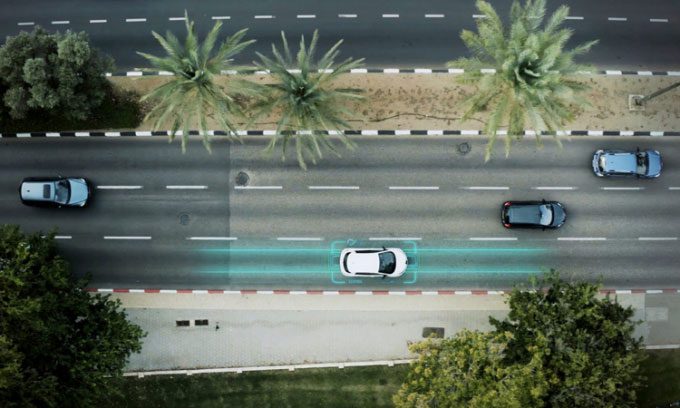Israeli Startup Builds 1.6km Wireless Charging Road for Electric Vehicles in Detroit, Michigan
Electreon, a startup based in Tel Aviv, Israel, is developing the first road in the U.S. that allows electric cars to charge while driving, as reported by Business Insider on February 4. Electreon is partnering with Ford and DTE to bring its wireless charging technology to Detroit, Michigan, next year. Previously, the company has installed its system on roads in Sweden, Israel, and Italy.

Illustration of an electric car charging while in motion using Electreon’s wireless charging technology. (Image: Electreon)
The charging road spans approximately 1.6 kilometers and is located near the Michigan Central Station in Detroit, an abandoned train station that Ford is transforming into a “mobility innovation district.” The state of Michigan plans to fund the project with $1.9 million. According to Electreon, the road is expected to be fully operational by 2023.
The new road charges electric vehicles whether they are stationary or in motion through an inductive charging process, utilizing magnetic field frequencies to transfer electricity from metal coils embedded in the road to a special receiver mounted underneath the vehicle. Gasoline and non-equipped electric vehicles can still operate normally on the new road. The installation of the receiver is estimated to cost between $3,000 to $4,000 per vehicle. However, Electreon hopes to reduce this cost to between $1,000 and $1,500.
Wireless charging technology could alleviate concerns about the range of electric vehicles and facilitate their widespread adoption. The infrastructure for electric vehicle charging remains a significant barrier to the popularization of electric cars. According to a survey conducted by experts at the University of California among California residents who purchased electric vehicles between 2012 and 2018, about one in five returned to gasoline vehicles due to the inconveniences associated with charging. Data from the American company JD Power in 2021 indicated that battery concerns are a key factor affecting the commercial viability of electric vehicles.
“We aim to lead the future of transportation and electrification by promoting electric vehicle production and reducing costs for consumers. Therefore, the integrated wireless charging system on the road is the next piece of the sustainable puzzle,” stated Gretchen Whitmer, Governor of Michigan.



















































